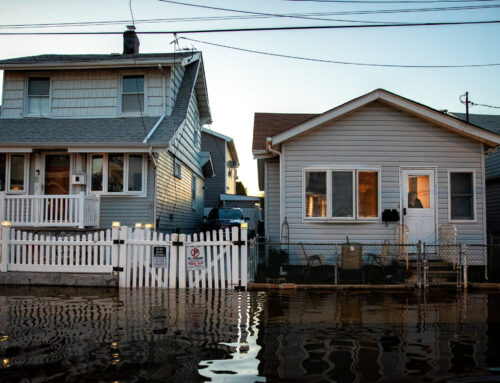BUILDING AND SUSTAINING A BETTER EARTH, ONE MISSON AT A TIME
April 7, 2025
For the U.S. Army Corps of Engineers (USACE), environmental stewardship is not a one-day effort, but a daily commitment deeply woven into the fabric of our mission. From responding swiftly to natural disasters to safeguarding delicate ecosystems, USACE continuously demonstrates its dedication to being responsible stewards of the planet.
This commitment is mirrored overseas by the Japan Engineer District (JED), where environmental responsibility is a cornerstone of every program and project.
In every aspect of our work, from rigorous asbestos abatement and lead-based paint removal to adhering strictly to environmental standards in construction and renovation—JED emphasizes meticulous management of environmental concerns.
The District’s efforts echo the environmental attention to detail of our sister offices across the U.S., who, like JED, mobilize to protect the environment during times of disaster.
A powerful example of this commitment came in August 2023, when wildfires devastated Lahaina, Maui.
In the aftermath, USACE quickly responded, focusing first on clearing hazardous debris to protect the community and begin the healing process. Working alongside local and federal partners, USACE ensured that debris removal efforts respected air and water quality, demonstrating that our response wasn’t simply about cleanup—it was about thoughtfully restoring balance to Maui’s fragile environment and helping the community rebuild sustainably.
Similarly, JED’s dedication to environmental preservation is particularly evident in Okinawa, Japan, where we work in close collaboration with the Japanese Ministry of Defense.
Here, we integrate sustainable practices into military infrastructure projects, especially those involving coastal construction like fuel offloading piers and land reclamation.
JED’s commitment to protecting sensitive marine habitats is reflected in careful environmental impact assessments, ensuring that the unique marine ecosystems of Okinawa are preserved. This approach underscores our broader dedication to environmental responsibility and international cooperation.
Our environmental focus was also evident in the aftermath of the Francis Scott Key Bridge collapse in Baltimore, Maryland, in March 2024.
Approximately 50,000 tons of debris had blocked the Fort McHenry Channel, presenting both a challenge and an opportunity for environmental protection. In this case, USACE’s response went beyond simply clearing the wreckage—it was guided by a deep commitment to minimizing ecological impacts.
Every decision, from debris removal to waterway restoration, prioritized the health of marine habitats, ensuring that operations respected the surrounding environment.
This approach reflected our core belief that rebuilding infrastructure should not come at the expense of nature, but rather, should contribute to the long-term resilience of both human and ecological communities.
Just as USACE’s response to the Francis Scott Key Bridge collapse reflected a commitment to balancing human needs with environmental preservation, JED’s efforts in Okinawa exemplify our broader mission of environmental stewardship on the international stage.
Through both domestic and international projects, USACE and the Japan Engineer District remains unwavering in its dedication to sustainability and ecological responsibility, ensuring that our work enhances communities while safeguarding the planet’s natural resources.
Search
RECENT PRESS RELEASES
Related Post


